No content results match your keyword.
Content
You have successfully logged out.
Not registered yet?
No content results match your keyword.
Content
No product results match your keyword.
Products
Eat what's good for you
Food is essential for survival and at the same time a powerful element in our social life. We celebrate family traditions, holidays and every culture has its own customs concerning food. After your stoma surgery, you can enjoy eating again. And that means you might consume and enjoy food way more than you have in a long time.

Eating and good nutrition play an important part in recovery from surgery, in convalescence from your disease and in coping with psychological or social problems that might have emerged in the past. Nevertheless, we have to take it step by step and cannot climb the highest peak in one day.
Move one step at a time
There is no specific dietary guideline and no established “ostomy diet” for people living with a stoma that dictates when and what step has to be taken. It is just the opposite: One has to consider that each individual with a stoma is unique and deserves to be taken with his/her individual likes, habits and needs. That also refers to your personal eating and drinking habits. On your journey to a life with stoma there are important considerations as you discover the foods that work best for you.
As everybody is different it is best to talk this diet sheet over with your physician or nutrition expert. They can tell you when to move on to each step. But remember, in the end it is your feeling which counts.

For the first few days after surgery, you most likely will not eat and drink as the muco-cutaneous junction which is the connection of the gut to the skin is not yet strong enough, wounds have to heal and your overall gut function will be disturbed. Infusion therapy often substitutes eating and drinking. If you feel like it, you can start drinking mild coffee, lemon water and water with syrup.
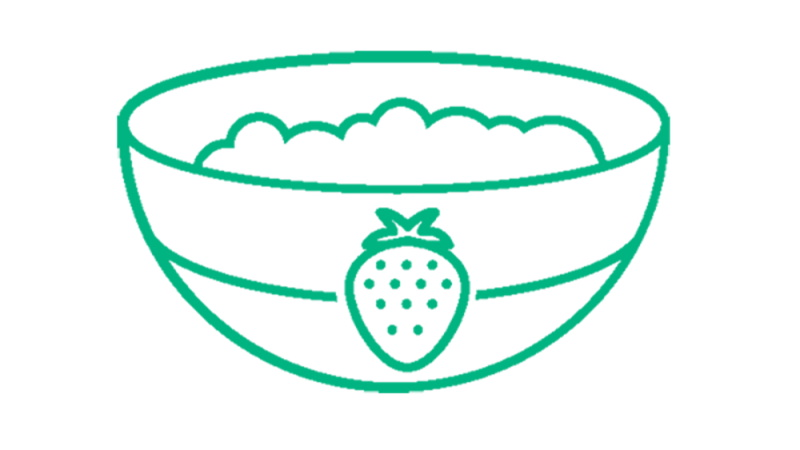
After approximately three to five days – trust your own feeling or ask your nutritional consultant – you can add pureed cooked fruit.
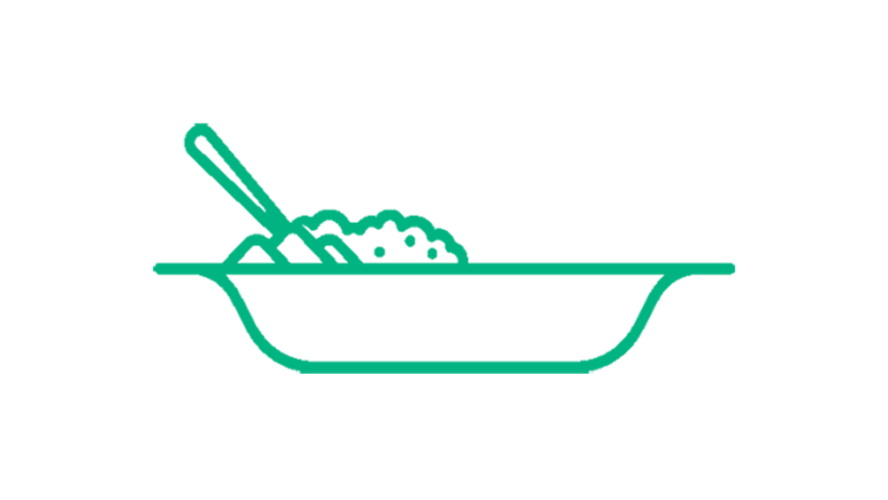
When you feel ready, you can start to eat half a portion of blended food. Use starchy ingredients and proteins. Continue to avoid food that may be irritable (next section) and vegetables.
Little by little, at your own pace, you can increase quantities and move on to more solid food.
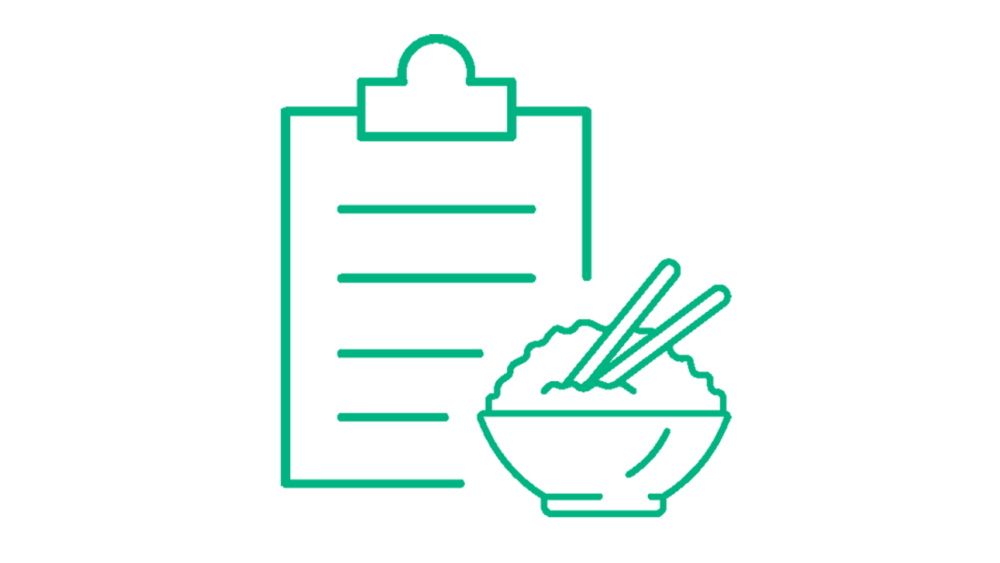
You have made it! Now you can not only drink fluids but also chew and eat solid food, all according to your prescribed diet and individual needs.
A plan for your diet
In the fourth week after your surgery, you will be most likely home again: One goal is to adapt and keep to your diet as to maintain frequency, consistency and amount of stool. You might not go back completely to what you were eating before your surgery but possibly after surgery it is now far more easy to maintain your bowel movement in the desired range. However, your new eating habits must aim to avoid malnutrition and dehydration which are often the challenges of utmost importance. With a well-balanced diet you can obtain all necessary vitamins, minerals and calories needed for good recovery.
Nutrition specialist, Dr Philippe Fauqué, has put together some important and helpful information for you. Among the top tips is this piece of advice:

“Eat starchy food as this is very well absorbed and brings you a lot of energy for your daily needs.”
Forbidden or allowed?
Whole wheat products seem healthier than modified food. Not at all, it can cause more gas and more problems with the stoma output, because it contains the outer layers of the cereal which does not dissolve and is extremely fermentable. So, avoid starchy products from whole cereals.
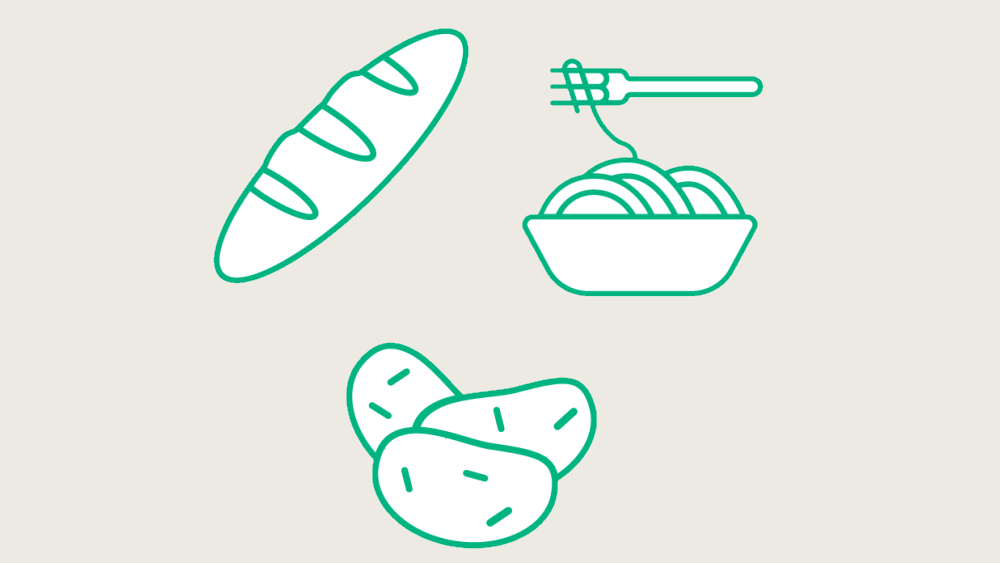
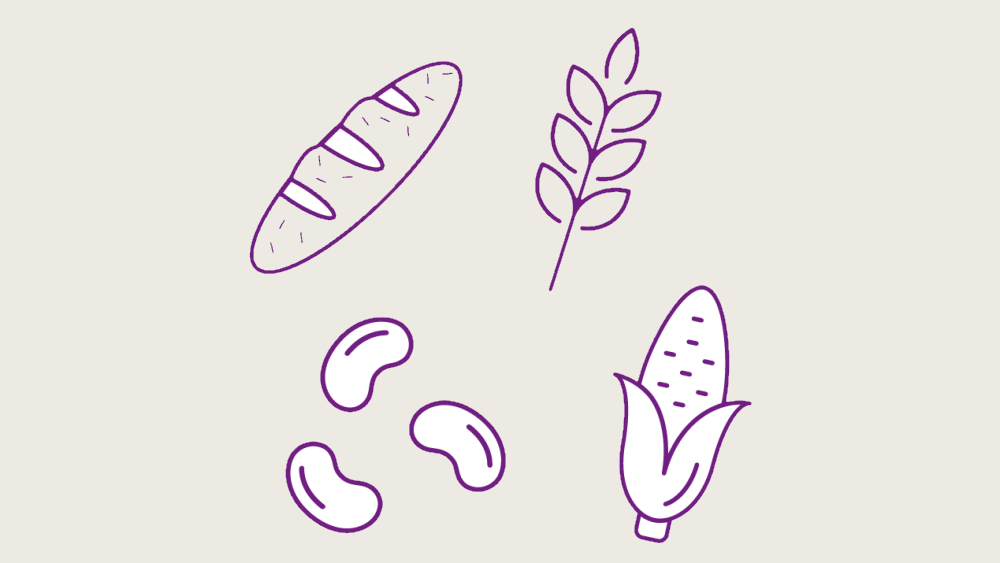
Even though starches are recommended, some aren’t helpful at this point. These are:
Forbidden or allowed?
Better choose cooked vegetables or fruits as they are easily digested. Raw vegetables and fruits will ferment much more and can cause a lot of gas and sometimes appliance issues.
You love coffee? Good for you, because coffee is preferable to tea (including herbal tea), which can irritate the intestine and therefore increases the stoma output and causes intestinal pain.
Still water is the better choice. The carbon dioxide in the sparkling water may react with the hydrochloric acid secreted in the stomach and forms a compound called carbonic acid that can irritate the intestinal mucosa.
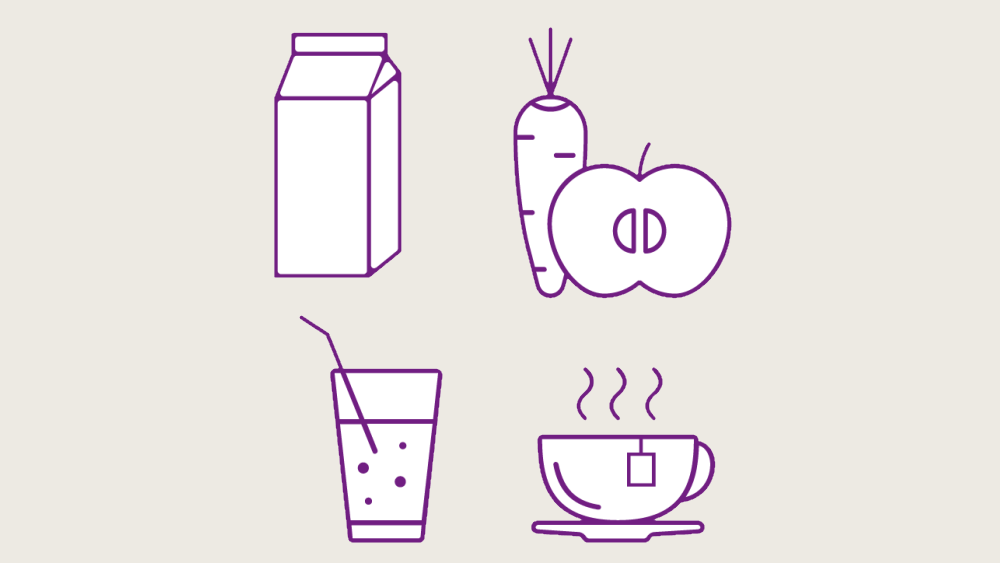
We have teamed up with a specialist to offer you valuable guidelines to adapt your eating habits. Dr Philippe Fauqué is a dietician physician specialized in nutrition. He leads the renowned clinical nutrition unit at the Institute Polyclinique of Cannes where people with various digestive pathologies are treated. Find here a short interview with him.
Marek Lichota a former ostomate encountered us his story regarding the different nutritional issues that he had to face during his hospital stay after his stoma surgery. Discover his main diet recommendations to people having an ostomy.